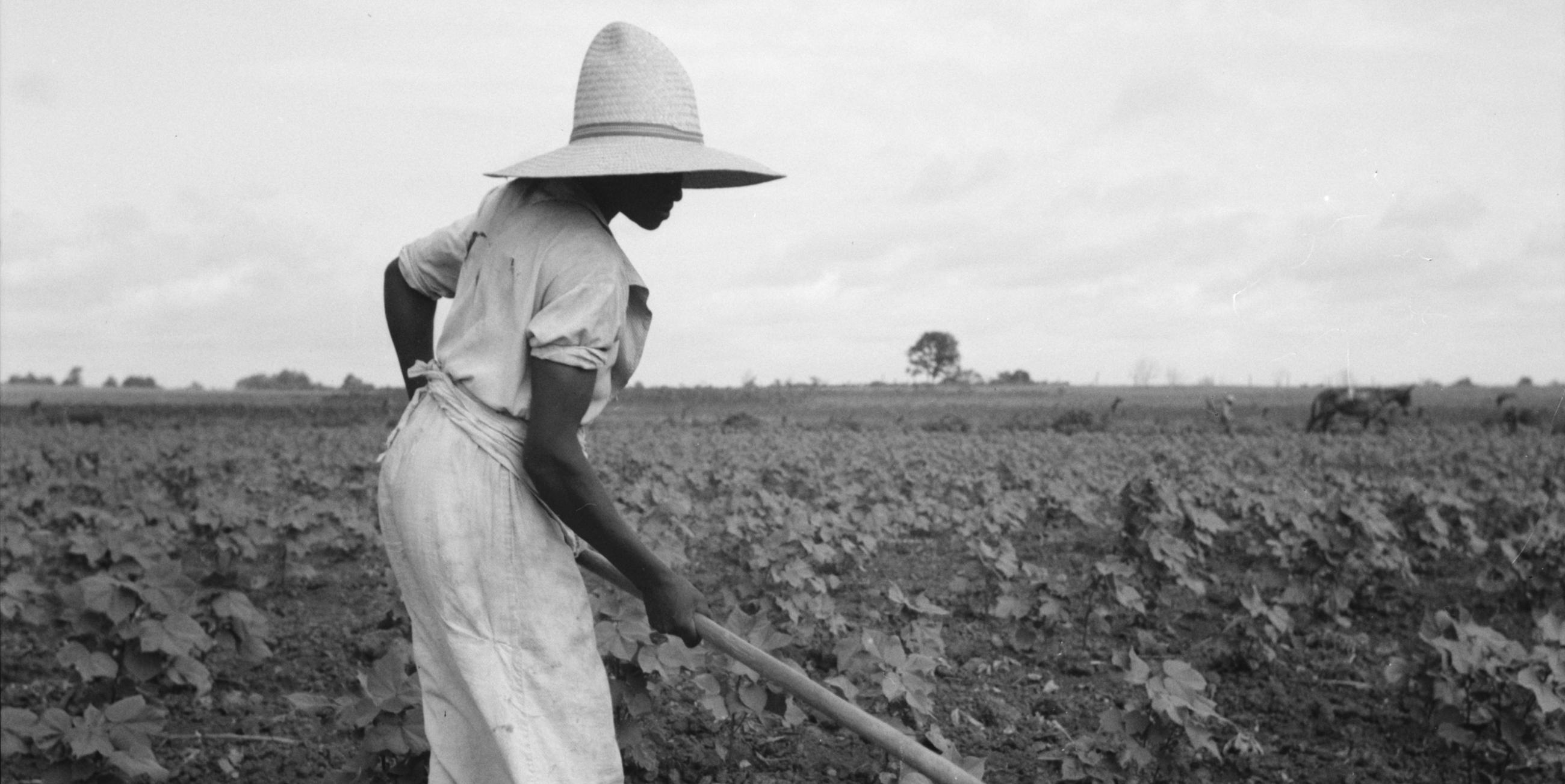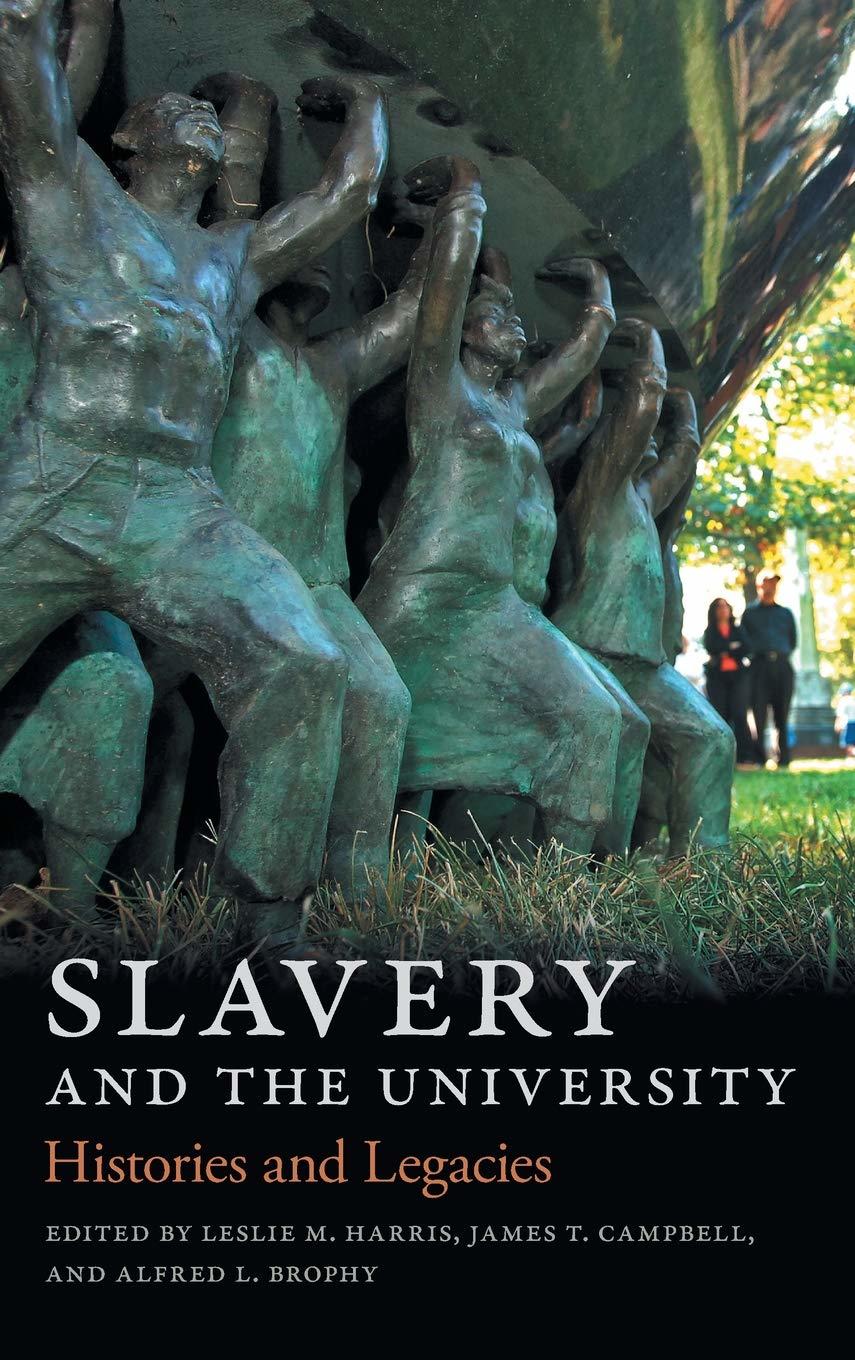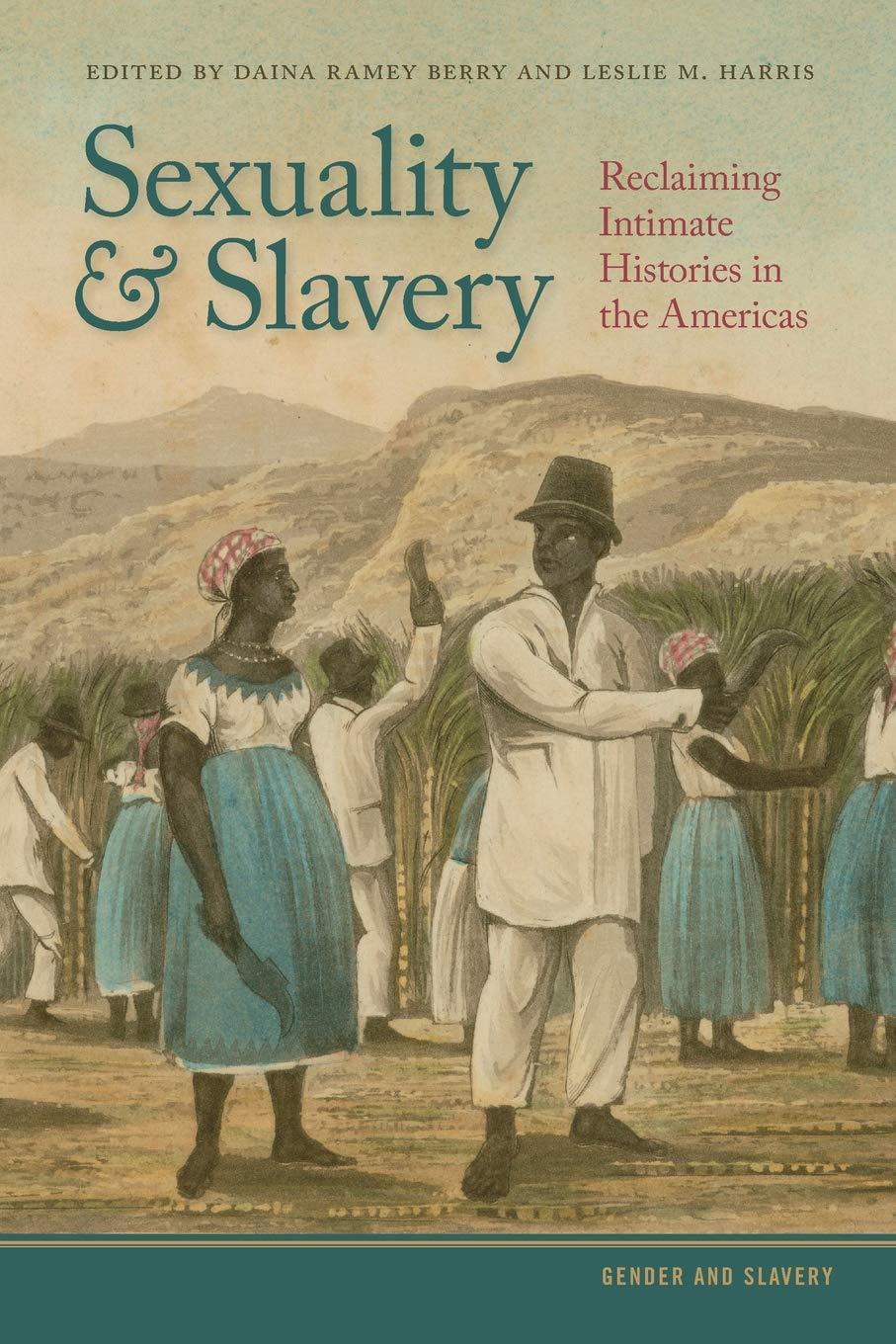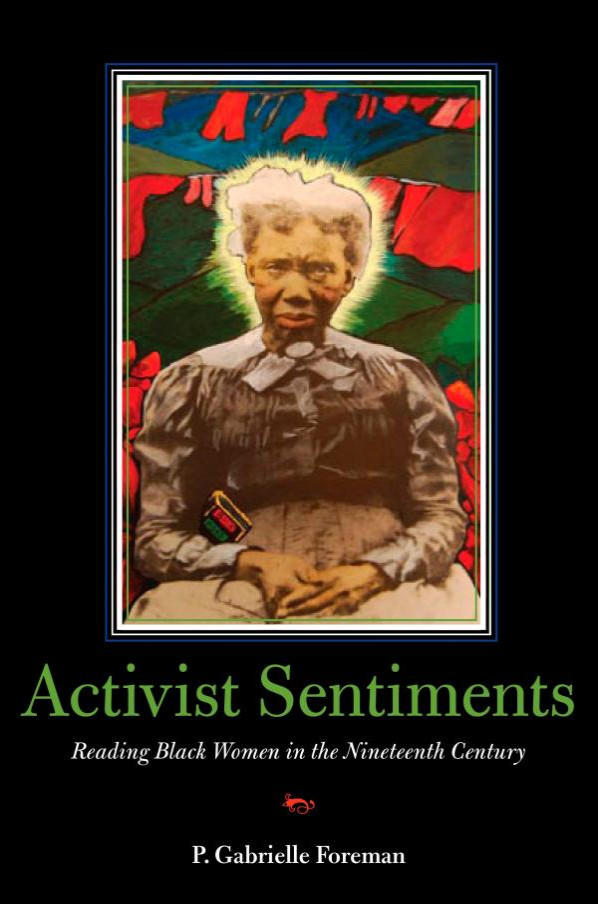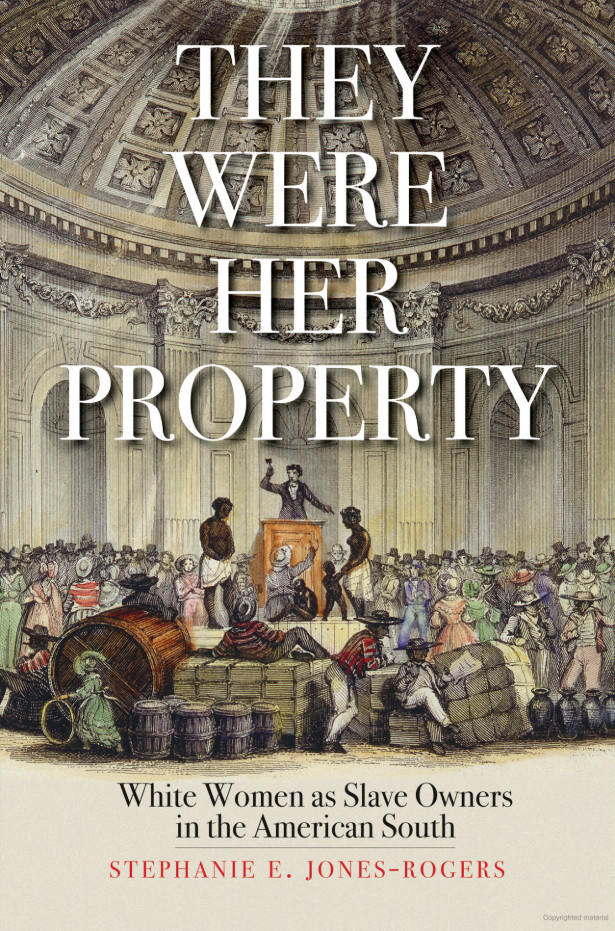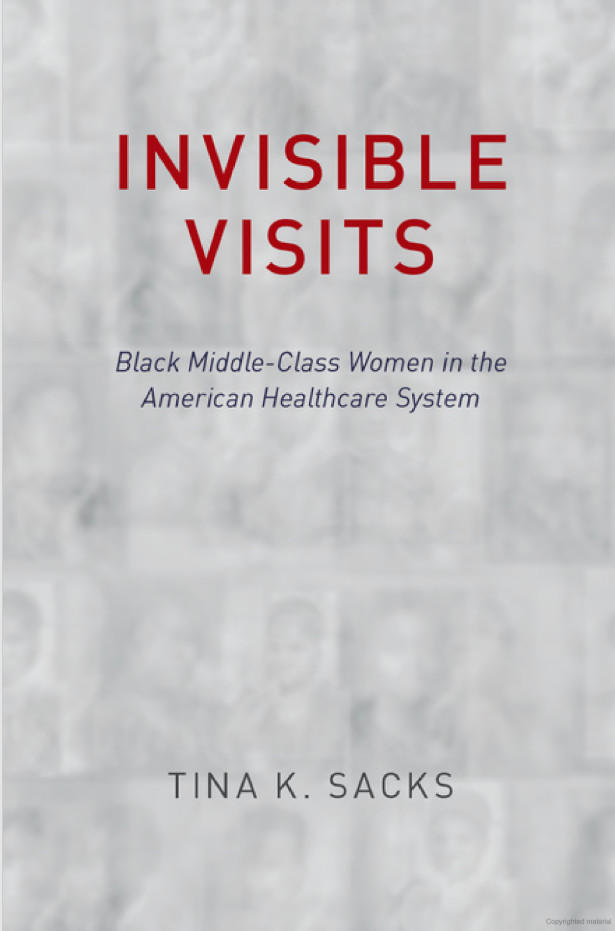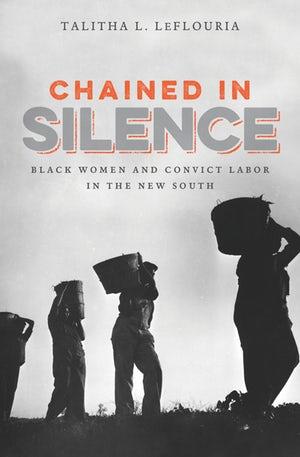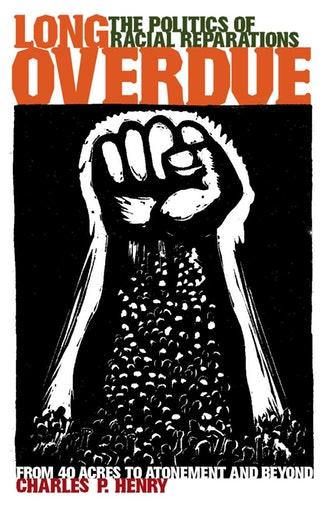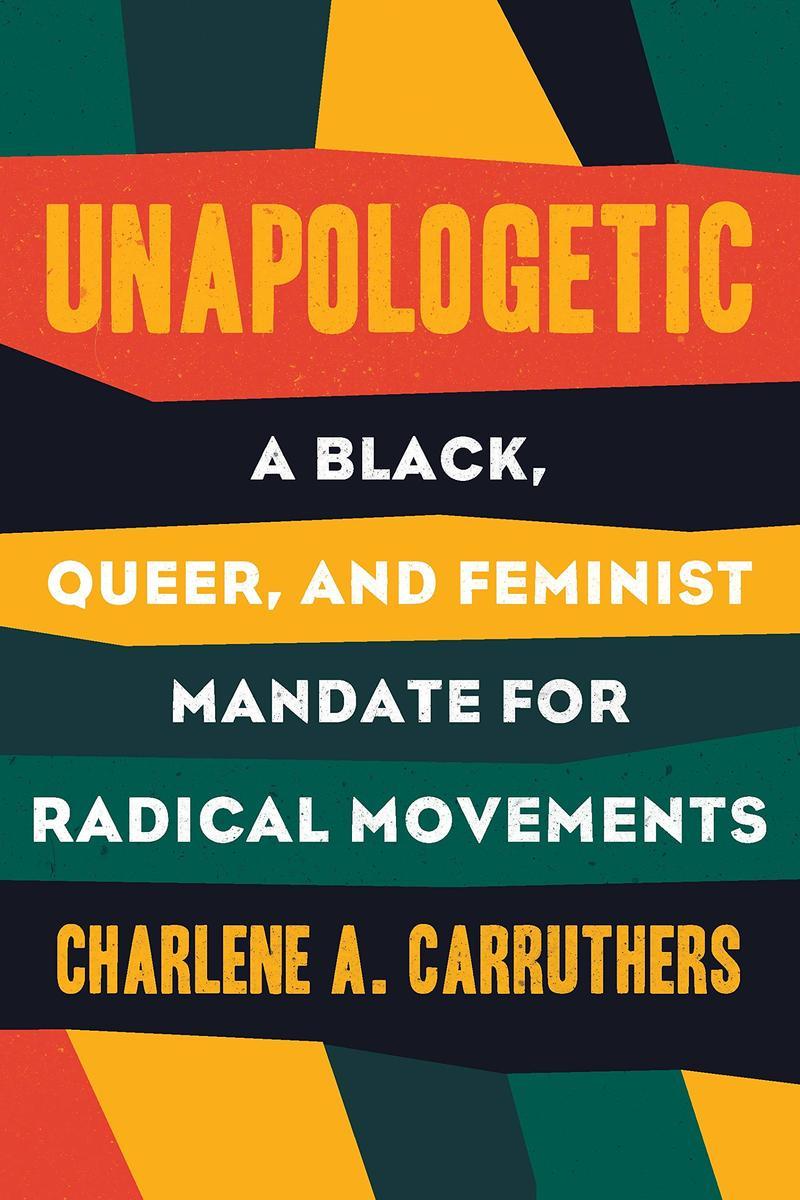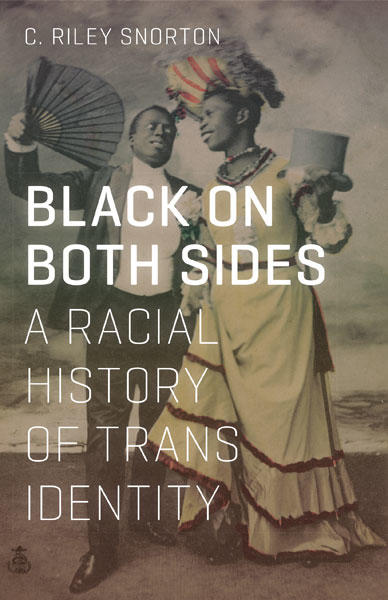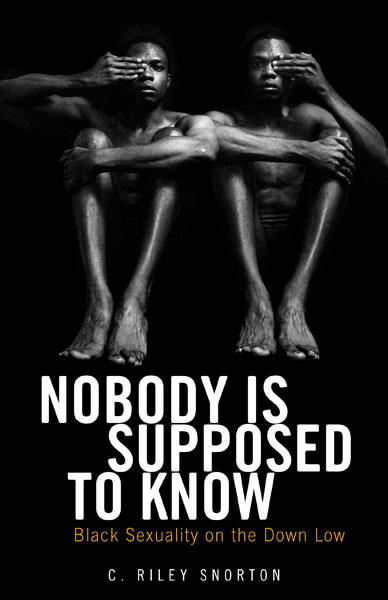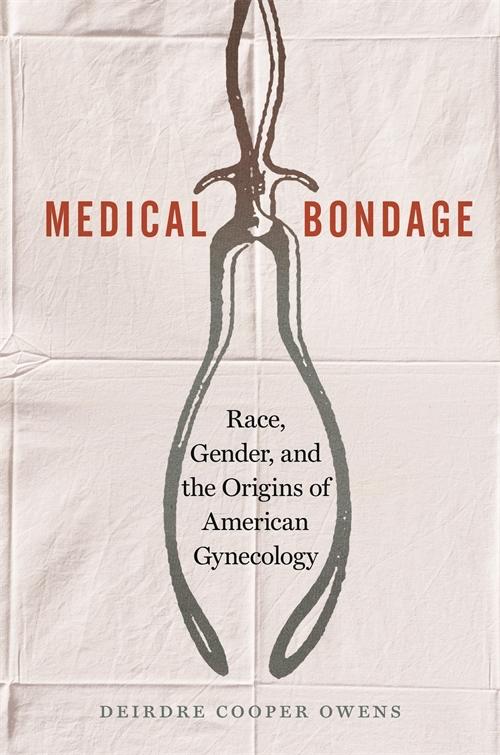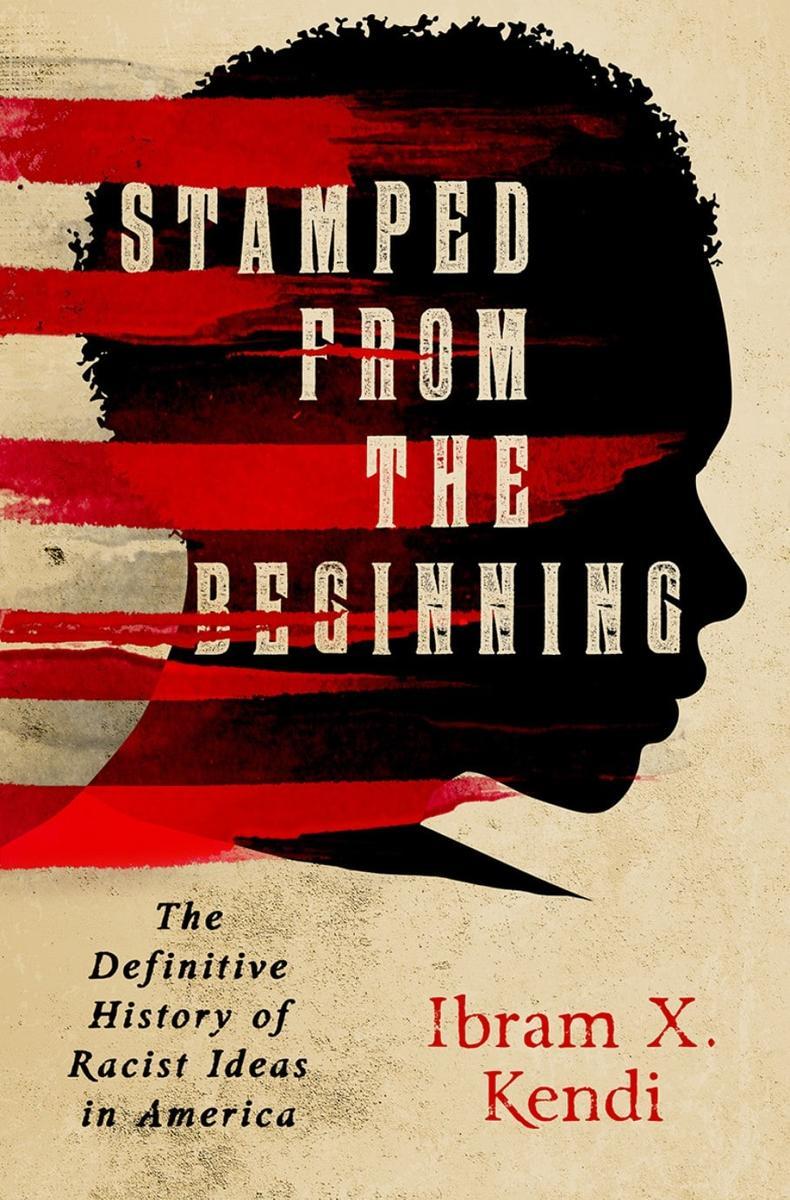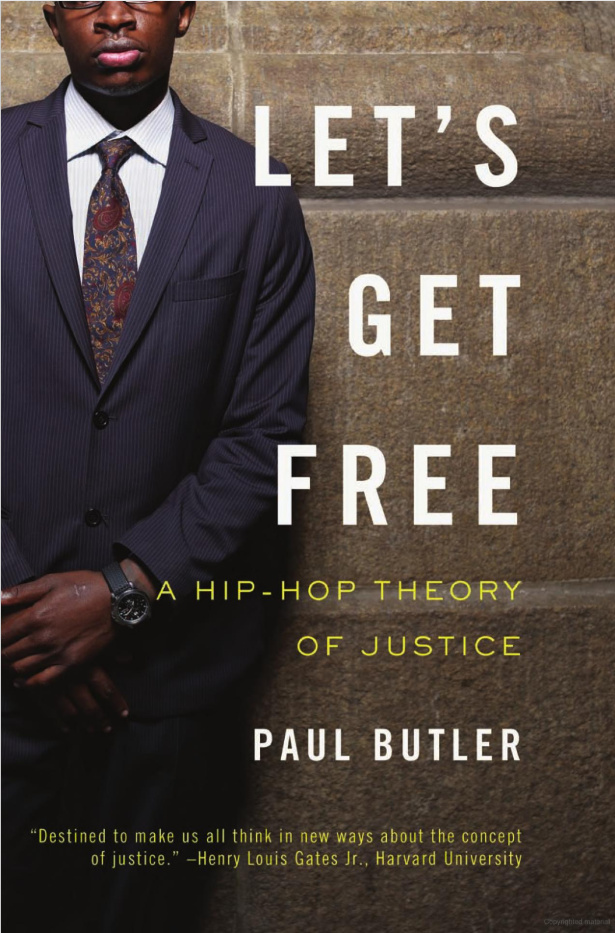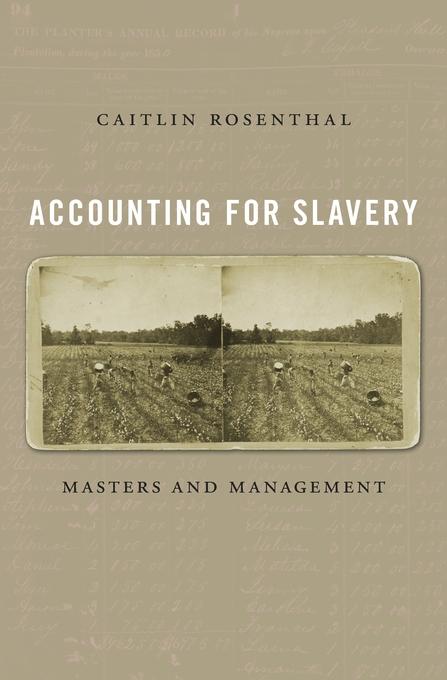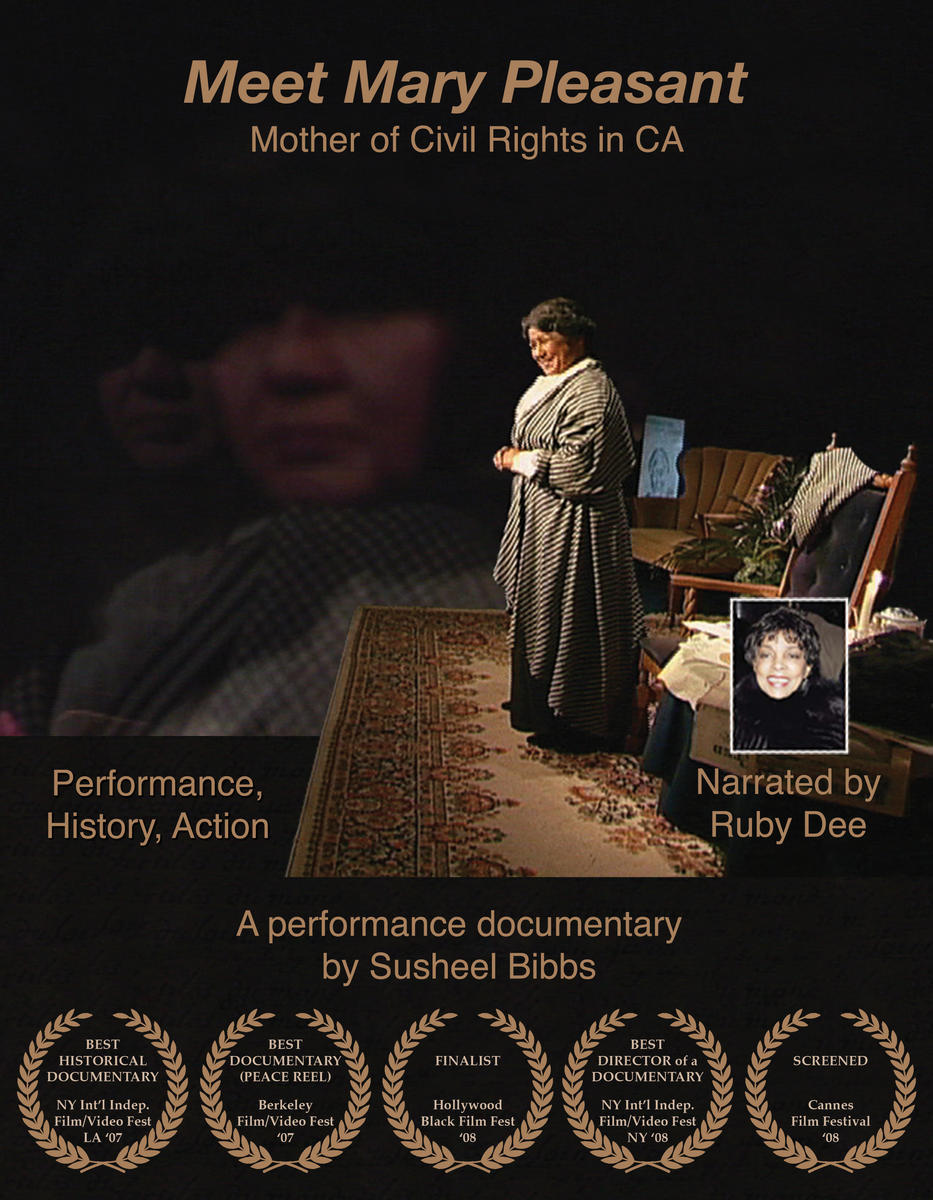Below you'll find a collection of books we've compiled from scholars both at UC Berkeley and other institutions on topics related to slavery, race, and other themes of the 400 Year Commemoration.
SLAVERY AND THE UNIVERSITY: HISTORIES AND LEGACIES
Edited by Leslie Harris, James T. Campbell and Alfred L. Brophy (University of Georgia Press, 2019)
Slavery and the University is the first edited collection of scholarly essays devoted solely to the histories and legacies of this subject on North American campuses and in their Atlantic contexts. Gathering together contributions from scholars, activists, and administrators, the volume combines two broad bodies of work: (1) historically based interdisciplinary research on the presence of slavery at higher education institutions in terms of the development of proslavery and antislavery thought and the use of slave labor; and (2) analysis on the ways in which the legacies of slavery in institutions of higher education continued in the post-Civil War era to the present day.
IN THE SHADOW OF SLAVERY: AFRICA’S BOTANICAL LEGACY IN THE ATLANTIC WORLD
By Judith Carney, Professor of Geography at UCLA, (University of California Press, 2011)
In the Shadow of Slavery provides a startling new assessment of the Atlantic slave trade and upends conventional wisdom by shifting attention from the crops slaves were forced to produce to the foods they planted for their own nourishment. Many familiar foods—millet, sorghum, coffee, okra, watermelon, and the “Asian” long bean, for example—are native to Africa, while commercial products such as Coca Cola, Worcestershire Sauce, and Palmolive Soap rely on African plants that were brought to the Americas on slave ships as provisions, medicines, cordage, and bedding.
HOW TO BE AN ANTIRACIST: A MEMOIR OF MY JOURNEY
By Ibram X. Kendi, Professor, History and International Relations, American University. (Penguin Random House, coming August 13, 2019)
Back in 2000, countless Americans were imagining their nation as colorblind. Eight years later, countless Americans were imagining their nation as post-racial. The discourse on racism, the recognition of racism seemed to be on the way out as the nation’s first Black president headed into the White House. But then came the racist reaction to President Barack Obama and the police killings of innocent Black people and the defenses and exonerations of those officers and then came the activists that prosecuted them in the court of public opinion with the opening and closing arguments that Black lives matter.
SEXUALITY AND SLAVERY: RECLAIMING INTIMATE HISTORIES IN THE AMERICAS
Edited by Daina Ramey Berry and Leslie M. Harris, (University of Georgia Press, 2018)
In this groundbreaking collection, editors Daina Ramey Berry and Leslie M. Harris place sexuality at the center of slavery studies in the Americas (the United States, the Caribbean, and South America). While scholars have marginalized or simply overlooked the importance of sexual practices in most mainstream studies of slavery, Berry and Harris argue here that sexual intimacy constituted a core terrain of struggle between slaveholders and the enslaved.
IN THE WAKE: ON BLACKNESS AND BEING
By Christina Sharpe, Professor, Department of Humanities in the Faculty of Liberal Arts and Professional Studies, York University. (Duke University Press, 2016)
In this original and trenchant work, Christina Sharpe interrogates literary, visual, cinematic, and quotidian representations of Black life that comprise what she calls the "orthography of the wake." Activating multiple registers of "wake"—the path behind a ship, keeping watch with the dead, coming to consciousness—Sharpe illustrates how Black lives are swept up and animated by the afterlives of slavery, and she delineates what survives despite such insistent violence and negation.
ACTIVIST SENTIMENTS: READING BLACK WOMEN IN THE NINETEENTH CENTURY
By Gabrielle Forman, Professor, University of Delaware. (University of Illinois Press 2009)
Activist Sentiments takes as its subject women who in fewer than fifty years moved from near literary invisibility to prolific productivity. Grounded in primary research and paying close attention to the historical archive, this book offers against-the-grain readings of the literary and activist work of Harriet Jacobs, Harriet Wilson, Frances E. W. Harper, Victoria Earle Matthews and Amelia E. Johnson.
THEY WERE HER PROPERTY: WHITE WOMEN AS SLAVE OWNERS IN THE AMERICAN SOUTH
By Stephanie E. Jones-Rogers, Associate Professor, UC Berkeley Department of History. (Yale University Press, February 2019)
They Were Her Property is a regional study that draws upon formerly enslaved people's testimony to dramatically reshape current understandings of white women's economic relationships to slavery. As a whole, this book offers more expansive and differently gendered understandings of American slavery, the trans-regional domestic slave trade, and nineteenth-century slave markets.
INVISIBLE VISITS: BLACK MIDDLE-CLASS WOMEN IN THE AMERICAN HEALTHCARE SYSTEM
By Tina Sacks, Assistant Professor, School of Social Welfare, UC Berkeley. (Oxford University Press, 2019)
Tina Sack’s most recent book investigates the persistence of racial and gender discrimination in health care settings among racial/ethnic minorities who are not poor. "When you look at inequalities in healthcare, you see a lot of studies tying the problems to race and poverty, but there's not a lot about educated, insured black women who are not poor," Professor Sacks says. "Yet infant mortality rates for black women with a college degree are higher than those for white women with just a high school education. I wanted to dig deeper into the personal experiences behind this disparity."
SLAVES OF THE STATE: BLACK INCARCERATION FROM THE CHAIN GANG TO THE PENITENTIARY
By Dennis Childs, Associate Professor of African American Literature, UC San Diego. (University of Minnesota Press, Spring 2015)
In Slaves of the State Dennis Childs argues that the incarceration of black people and other historically repressed groups in chain gangs, peon camps, prison plantations, and penitentiaries represents a ghostly perpetuation of chattel slavery. With more than 2.3 million people in the country’s jails, prisons, and immigrant detention centers, Childs exposes slavery as a continuing social reality of U.S. empire.
CHAINED IN SILENCE: BLACK WOMEN AND CONVICT LABOR IN THE NEW SOUTH
By Talitha LeFlouria, Associate Professor, University of Virginia. (UNC Press, 2015)
Talitha LeFlouria argues that African American women's presence within the convict lease and chain-gang systems of Georgia helped to modernize the South by creating a new and dynamic set of skills for black women. At the same time, female inmates struggled to resist physical and sexual exploitation and to preserve their human dignity within a hostile climate of terror. This revealing history redefines the social context of black women’s lives and labor in the New South and allows their stories to be told for the first time.
BETWEEN GOOD AND GHETTO: AFRICAN AMERICAN GIRLS AND INNER-CITY VIOLENCE
By Nikki Jones, Associate Professor, Department of African American Studies, UC Berkeley. (Rutgers University Press, 2009)
Drawing on personal encounters, traditions of urban ethnography, Black feminist thought, gender studies, and feminist criminology, Nikki Jones gives readers a richly descriptive and compassionate account of how African American girls negotiate schools and neighborhoods governed by the so-called "code of the street" form of street justice that governs violence in distressed urban areas. The book encourages others to move African American girls toward the center of discussions of "the crisis" in poor, urban neighborhoods.
LONG OVERDUE: THE POLITICS OF RACIAL REPARATIONS
By Charles Henry, Professor Emeritus of African American Studies, UC Berkeley. (New York University Press, 2007)
Ever since the unfulfilled promise of “forty acres and a mule,” America has consistently failed to confront the issue of racial injustice. Exploring why America has failed to compensate Black Americans for the wrongs of slavery, Long Overdue provides a history of the racial reparations movement and shows why it is an idea whose time has come.
UNAPOLOGETIC: A BLACK, QUEER AND FEMINIST MANDATE FOR RADICAL MOVEMENTS
By Charlene Carruthers, Founder, Chicago Center for Leadership and Transformation. (Beacon Press, 2018)
Drawing on Black intellectual and grassroots organizing traditions, including the Haitian Revolution, the US civil rights movement, and LGBTQ rights and feminist movements, Unapologetic challenges all of us engaged in the social justice struggle to make the movement for Black liberation more radical, more queer, and more feminist. This book provides a vision for how social justice movements can become sharper and more effective through principled struggle, healing justice, and leadership development.
FREEDOM ON MY MIND: A HISTORY OF AFRICAN AMERICANS WITH DOCUMENTS
By Deborah Gray White, Mia Bay, and Waldo E. Martin, Jr. (Bedford/St. Martin's, 2013)
Award-winning scholars and veteran teachers Deborah Gray White, Mia Bay, and Waldo E. Martin Jr. have collaborated to create a fresh, innovative new African American history textbook that weaves together narrative and a wealth of carefully selected primary sources. The narrative focuses on the diversity of black experience, on culture, and on the impact of African Americans on the nation as a whole.
RACE AFTER TECHNOLOGY: ABOLITIONIST TOOLS FOR THE NEW JIM CODE
By Ruha Benjamin, Associate Professor of African American Studies, Princeton University. (Polity, 2019)
From everyday apps to complex algorithms, Ruha Benjamin cuts through tech-industry hype to understand how emerging technologies can reinforce White supremacy and deepen social inequity. Benjamin argues that automation, far from being a sinister story of racist programmers scheming on the dark web, has the potential to hide, speed up, and deepen discrimination while appearing neutral and even benevolent when compared to the racism of a previous era.
PEOPLE’S SCIENCE: BODIES AND RIGHTS ON THE STEM CELL FRONTIER
By Ruha Benjamin, Associate Professor of African American Studies, Princeton University. (Stanford University Press, 2013)
People's Science uncovers the tension between scientific innovation and social equality, taking the reader inside California's 2004 stem cell initiative, the first of many state referenda on scientific research, to consider the lives it has affected. Benjamin reveals the promise and peril of public participation in science, illuminating issues of race, disability, gender, and socio-economic class that serve to define certain groups as more or less deserving in their political aims and biomedical hopes.
BLACK ON BOTH SIDES: A RACIAL HISTORY OF TRANS IDENTITY
By C. Riley Snorton, Professor of English Language and Literature, University of Chicago. (University of Minnesota Press, 2017)
In Black on Both Sides, C. Riley Snorton identifies multiple intersections between blackness and transness from the mid-nineteenth century to present-day anti-black and anti-trans legislation and violence. Drawing on a deep and varied archive of materials, Snorton attends to how slavery and the production of racialized gender provided the foundations for an understanding of gender as mutable.
NOBODY IS SUPPOSED TO KNOW: BLACK SEXUALITY ON THE DOWN LOW
By C. Riley Snorton, Professor of English Language and Literature, University of Chicago. (University of Minnesota Press, 2014)
Since the early 2000s, the phenomenon of the “down low”—black men who have sex with men as well as women and do not identify as gay, queer, or bisexual—has exploded in media and popular culture. C. Riley Snorton traces the emergence and circulation of the down low, demonstrating how these portrayals reinforce troubling perceptions of black sexuality generally.
MEDICAL BONDAGE: RACE, GENDER AND THE ORIGINS OF AMERICAN GYNECOLOGY
By Deirdre Cooper Owens, Associate Professor of History at Queens College. (University of Georgia Press, 2018)
In Medical Bondage, Cooper Owens examines a wide range of scientific literature and less formal communications in which gynecologists created and disseminated medical fictions about their patients, such as their belief that black enslaved women could withstand pain better than white "ladies." Even as they were advancing medicine, these doctors were legitimizing, for decades to come, groundless theories related to whiteness and blackness, men and women, and the inferiority of other races or nationalities.
STAMPED FROM THE BEGINNING: THE DEFINITIVE HISTORY OF RACIST IDEAS IN AMERICA
By Ibram X. Kendi, Professor, History and International Relations, American University. (PublicAffairs, 2016)
Contrary to popular conceptions, racist ideas did not arise from ignorance or hatred. Instead, they were devised and honed by some of the most brilliant minds of each era. These intellectuals used their brilliance to justify and rationalize deeply entrenched discriminatory policies and the nation’s racial disparities in everything from wealth to health. And while racist ideas are easily produced and easily consumed, they can also be discredited.
CHOKEHOLD: POLICING BLACK MEN
By Paul Butler, Professor, Georgetown Law.(New York: The New Press 2017)
In this explosive book, an African American former federal prosecutor shows that the system is working exactly the way it’s supposed to. Black men are always under watch, and police violence is widespread—all with the support of judges and politicians.
LET’S GET FREE: A HIP-HOP THEORY OF JUSTICE
By Paul Butler, Professor, Georgetown Law. (New York: New Press 2009)
Paul Butler was an ambitious federal prosecutor, a Harvard Law grad who gave up his corporate law salary to fight the good fight—until one day he was arrested on the street and charged with a crime he didn’t commit. The book brings Butler’s groundbreaking and highly controversial arguments—jury nullification (voting “not guilty” in drug cases as a form of protest), just saying “no” when the police request your permission to search, and refusing to work inside the system as a snitch or a prosecutor—to a whole new audience.
THE DEEPEST WELL: HEALING THE LONG-TERM EFFECTS OF CHILDHOOD ADVERSITY
Nadine Burke Harris, California Surgeon General.
A pioneering physician reveals how childhood stress can lead to lifelong health problems, and shows us what we can do to break the cycle. After surveying more than 17,000 adult patients, Harris found that the higher a person’s adverse childhood experiences (ACE) score, the worse their health. This led Burke Harris to an astonishing breakthrough—childhood stress changes our neural systems and its impact lasts a lifetime.
EPIDEMIOLOGY AND THE PEOPLE’S HEALTH: THEORY AND CONTEXT
By Nancy Krieger, Professor, Harvard T.H. Chan School of Public Health. (Oxford University Press, 2011)
This book presents the argument for why epidemiologic theory matters. Tracing the history and contours of diverse epidemiologic theories of disease distribution from ancient societies on through the development of — and debates within — contemporary epidemiology worldwide, it considers their implications for improving population health and promoting health equity.
ACCOUNTING FOR SLAVERY: MASTERS AND MANAGEMENT
By Caitlin C. Rosenthal, Assistant Professor, UC Berkeley Department of History. (2018)
Accounting for Slavery explores the development of business practices on slave plantations and uses this history to understand the relationship between violence and innovation. By showing the many ways that business innovation can be a byproduct of bondage, Rosenthal further erodes the false boundary between capitalism and slavery and illuminates deep parallels between the outlooks of eighteenth- and nineteenth-century slaveholders and the ethical dilemmas facing twenty-first-century businesses.
DOCUMENTARY FEATURE: MEET MARY PLEASANT, MOTHER OF CIVIL RIGHTS IN CALIFORNIA
Directed by Susheel Bibbs, former faculty, UC Berkeley. (PBS, 2008)
Born a slave, she became an Underground Railroad operative and the most talked about woman in gold-rush San Francisco. A celebrated entrepreneur, she amassed a joint fortune once assessed at $30,000,000. Called "The Black City Hall" for the jobs and appeals she won for African Americans, she risked security to aid the abolitionist John Brown. Her court battle in the California Supreme Court impacted modern-day civil-rights law.
LIFE OF WILLIAM GRIMES, THE RUNAWAY SLAVE
Edited by Regina Mason and William L. Andrews. (Originally published 1825; Oxford University Press revised edition 2008)
Life of William Grimes, the Runaway Slave is the first fugitive slave narrative in American history. Because Grimes wrote and published his narrative on his own, without deference to white editors, publishers, or sponsors, his life has an immediacy, candor, and no-holds-barred realism unparalleled in the famous antebellum slave narratives of the period. This edition of Grimes's autobiography represents an historic partnership between noted scholar of the African American slave narrative, William L. Andrews, and Regina Mason, Grimes's great-great-great-granddaughter.

